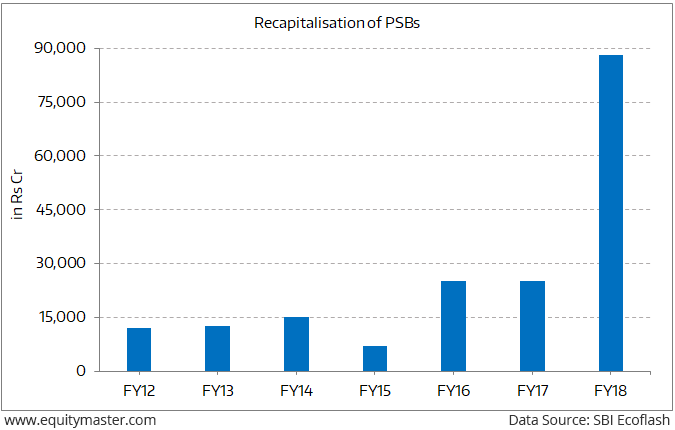- Home
- Todays Market
- Indian Stock Market News February 22, 2019
Sensex Opens Flat; Metal & Capital Goods' Stocks Lag Fri, 22 Feb 09:30 am
Asian stock markets finished mixed as of the most recent closing prices. The Hang Seng gained 0.4% and the Nikkei 225 rose 0.2%. The Shanghai Composite lost 0.3%. Weak economic reports pressured US stocks on Thursday after the market's recent run of gains, and a drop in healthcare shares added to the bearish momentum.
Back home, India share markets opened flat. The BSE Sensex is trading down by 35 points while the NSE Nifty is trading down by 4 points. Both, the BSE Mid Cap index and BSE Small Cap index opened up by 0.1%.
Sectoral indices have opened on a mixed note with energy stocks and realty stocks witnessing maximum buying interest while, metal stocks and capital goods stocks are trading in red.
The rupee is currently trading at Rs 71.21 against the US$.
In the news from the aviation sector. Government-owned State Bank of India and Punjab National Bank have agreed to provide Rs 5 billion emergency funding for Jet Airways, subject to others in the consortium of lenders not objecting.
Reportedly, this money will allow the airline to continue operations until the lenders determine the best way of restructuring the company's debt of more than Rs 80 billion.
Under the provisional resolution plan proposed by lead lender SBI earlier this month, banks are likely to convert a part of the debt into 114 million shares by paying a token Re 1 apiece based on the Reserve Bank of India (RBI) restructuring guidelines. This will give lenders a majority 50.1% shareholding in the company.
However, this plan is yet to get the approval of the other lenders and with a recast proposal unlikely to be decided soon, the emergency funding is considered crucial.
Meanwhile, Jet Airways posted its fourth consecutive quarter of losses in October-December period.
It swung to a loss of Rs 5.9 billion from a profit of Rs 1.7 billion a year earlier.
Jet Airways defaulted on loan repayments in December and delayed salaries for several months, a development that has been flagged as a safety risk in a regulatory audit.
To know more about the company, you can access to Jet Airways' latest result analysis and Jet Airways' 2017-18 Annual Report Analysis on our website.
Moving on to the news fro banking sector. As per ratings agency Moody's, the fresh round recapitalisation of 12 state-run banks is positive as it will help them improve their core capital, but a complete turnaround is still away due to the large quantum of legacy bad loans.
On Wednesday, the government had announced Rs 482.4 billion capital infusion into 12 public sector banks in this financial year to help them maintain regulatory capital requirements and finance growth plans.
In December 2018, the government increased capital infusions for these banks for financial year 2019 by a combined Rs 410 billion to Rs 1.1 trillion from the originally planned Rs 650 billion.
Rating agency Moody's on Thursday said the capital support to state-run banks have been increased from the original plan as banks' capital shortfalls have grown larger than the initial projections.
As per the report, these banks are far from a complete turnaround as large volumes of problem-loans will still continue to cap improvements in profitability and capitalisation, constraining their credit profiles.
A key hindrance to a faster turnaround of these banks is the slow progress in the resolution of legacy bad loans and the need to build up provisions against those assets.
It said farm loan waivers, which three states have granted since November 2018, are a risk because these measures can incentivise borrowers to not repay their loans, contributing to more bad loans in the agricultural lending books.
Besides vulnerabilities linger among small businesses as reflected in the spikes in bad loans.
It said the fresh capital will enable banks to use operating profit to significantly boost provisions for bad loans. It expects state-run banks' capital shortages to shrink substantially in financial year 2020 as their asset quality improves, which will lead to declines in credit costs and gains in profitability.
Speaking of recapitalisation of PSBs, we at Equitymaster believe, using recapitalisation bonds can only act as a short-term measure to the crisis afflicting Indian public sector banks today. Such a measure will not address the structural issue in the banking system, i.e. the poor standard of lending and poor governance system.
Recapitalisation of PSBs Over the Years
Our big picture editor, Vivek Kaul, talks about moral hazard risk arising out of recapitalization. He writes:
- "If the government bails them around this time around, the banks know that they can count on the government bailing them out the next time around as well. And this means that they can follow fairly loose standards of lending, in order to lend money quickly."
To know what's moving the Indian stock markets today, check out the most recent share market updates here.
For information on how to pick stocks that have the potential to deliver big returns, download our special report now!
Read the latest Market Commentary



Equitymaster requests your view! Post a comment on "Sensex Opens Flat; Metal & Capital Goods' Stocks Lag". Click here!
Comments are moderated by Equitymaster, in accordance with the Terms of Use, and may not appear
on this article until they have been reviewed and deemed appropriate for posting.
In the meantime, you may want to share this article with your friends!